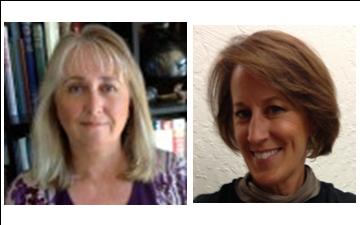Picture a modest church. A woman reading aloud from the Bible suddenly stops. An overwhelming sense of God’s presence and love — there and then, with this congregation, with all humanity — has so uplifted her that tears stream down her face. For a few moments, she can’t continue reading.
This isn’t the sort of experience that makes headlines. Moments of deep communion with God aren’t regular newspaper fare. But it’s an experience that people continue to have in the 21st century, whether or not they’re gathered in church congregations or synagogues, temples or mosques.
In this case, the church was our own — we’re Christian Scientists. But whatever the particular faith, when spiritual light and love break into ordinary lives, it’s as newsworthy as it is natural. It points to a great yearning in American society, even among the non-religious, for something more meaningful than the materialism so relentlessly pressed in contemporary culture.
Challenges confronting our Arizona congregations have prompted many of us to look to our core values as people of faith. In these core values is the power that renews individual lives and churches and revitalizes society as a whole.
For us, it’s been about taking Christ Jesus’ most essential teaching more seriously than ever —to love one another. We know we have a lot to learn about this. We see fine examples in community volunteers helping others. As Mary Baker Eddy, the founder of my church, wrote, “Blessed is that man who seeth his brother’s (and sister’s) need and supplieth it, seeking his own in another’s good.”
True religion gets us out of our shells, reminding us that the great purpose of worship is a revitalized sense of the power of God’s love and forgiveness for ourselves and others, and a deepening sense of all humanity as God’s children. It starts with our seeing the image of God in everyone.
In our own churches, we’re seeing renewed spiritual focus on the ministry of Christian healing through prayer, a practice central to our faith. Though often misunderstood, prayer that heals has dimensions that reach far beyond stereotypes of “faith healing.”
Christian Scientists’ practice of healing in Arizona goes back to territorial days and continues today. From the healing through prayer of a young man with “lung trouble” sent to Prescott in 1900 for the dry climate, to more recent healings of migraine, gum abscess, a broken wrist and cataract, such experiences have been regular occurrences in Christian Scientists’ lives. A current member healed of a disease pronounced incurable, wrote, “Since the day that I was healed, I have had a voracious appetite for learning as much as I can about God’s divine harmony and love. … I started reading (the Bible) with new insight. I now understood more deeply the lessons that Christ Jesus was teaching and the true nature of the Gospel’s ‘good news.’ ” For Christian Scientists, healings such as these aren’t signs of God’s favor for a special few. They show God’s love for everyone. The challenges we face in our individual lives often cause us to wrestle with our limited notions of God, and to renew and deepen our commitment to seeing ourselves and others — of whatever creed, gender, politics, or nationality — as God sees us all.
There’s an awakening to the fact that we can work together and that it requires of us the practical Christianity so evident in the life and love of Christ Jesus. It’s bringing a new spirit of joy and healing in our own movement, right as communities worldwide are searching for deeper answers to human needs.
Diane R. Hanover is Christian Science Committee on Publication member for Arizona; Anne Taylor is the Christian Science Council member for the Arizona Interfaith Movement
Faith Matters
Diane R. Hanover and Anne Taylor Guest columnists
PART OF THE USA TODAY NETWORK Copyright © 2019 The Arizona Republic 7/24/2019

